I'm struggling with reading file stream inside Android environment using C++ library. I believe I set all the permissions correctly (1st figure) and I'm getting the file path using Android internal library. Would you please give me a snippet to correctly read a file using std::ifstream.getline()? For instance, I get "/document/1EF7-1509:Download/015_1440.jpg" for the image file existing in the 2nd figure under "Download" folder. This path is a raw value returned by "Intent.getData().getPath()" with "ACTION_GET_CONTENT".
extern "C" JNIEXPORT jstring JNICALL Java_com_example_testpplication_MainActivity_testGeneralEncryption(JNIEnv* env, jobject, jstring myString)
{
const char *nativeString = env->GetStringUTFChars(myString, nullptr);
std::string filePath = std::string(nativeString);
std::string buffer;
std::ifstream fStreamIn(filePath);
if(fStreamIn.is_open())
{
std::getline(fStreamIn, buffer);
}
else
{
bool exists = fStreamIn.good();
if(exists)
{
buffer = "Exists";
}
else
{
buffer = "Non-existing";
}
}
return env->NewStringUTF((buffer + ":" + filePath).c_str());
}


